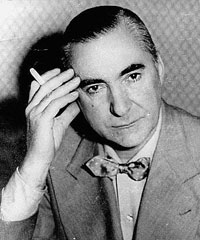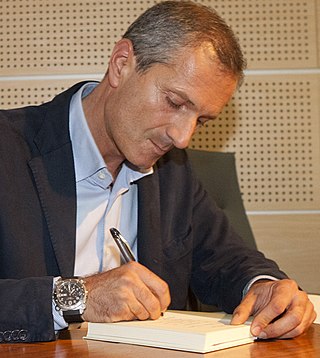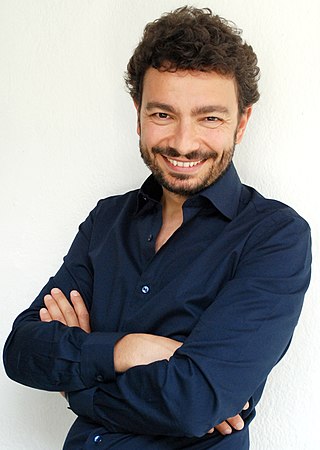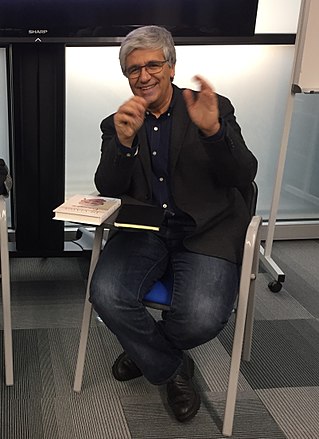
Historical fiction is a literary genre in which a fictional plot takes place in the setting of a particular real historical events. Although the term is commonly used as a synonym for historical fiction literature, it can also be applied to other types of narrative, including theatre, opera, cinema, and television, as well as video games and graphic novels. It often makes many use of symbolism in allegory using figurative and metaphorical elements to picture a story.
An imprimatur is a declaration authorizing publication of a book. The term is also applied loosely to any mark of approval or endorsement. The imprimatur rule in the Catholic Church effectively dates from the dawn of printing, and is first seen in the printing and publishing centres of Germany and Venice; many secular states or cities began to require registration or approval of published works around the same time, and in some countries such restrictions still continue, though the collapse of the Soviet bloc has reduced their number.

Curzio Malaparte, born Kurt Erich Suckert, was an Italian writer, filmmaker, war correspondent and diplomat. Malaparte is best known outside Italy due to his works Kaputt (1944) and The Skin (1949). The former is a semi-fictionalised account of the Eastern Front during the Second World War and the latter is an account focusing on morality in the immediate post-war period of Naples.

Alberto Pincherle, known by his pseudonym Alberto Moravia, was an Italian novelist and journalist. His novels explored matters of modern sexuality, social alienation and existentialism. Moravia is best known for his debut novel Gli indifferenti and for the anti-fascist novel Il conformista, the basis for the film The Conformist (1970) directed by Bernardo Bertolucci. Other novels of his adapted for the cinema are Agostino, filmed with the same title by Mauro Bolognini in 1962; Il disprezzo, filmed by Jean-Luc Godard as Le Mépris ; La noia (Boredom), filmed with that title by Damiano Damiani in 1963 and released in the US as The Empty Canvas in 1964 and La ciociara, filmed by Vittorio De Sica as Two Women (1960). Cédric Kahn's L'Ennui (1998) is another version of La noia.

Gianrico Carofiglio is an Italian novelist and former anti-Mafia judge in the city of Bari. His debut novel, Involuntary Witness, published in 2002 and translated into English in 2005 by Patrick Creagh, was published by the Bitter Lemon Press and has been adapted as the basis for a popular television series in Italy. The subsequent novels were translated by Howard Curtis and Antony Shugaar.

Domenico Starnone is an Italian writer, screenwriter, and journalist.

Roberto Saviano is an Italian writer, essayist, journalist, and screenwriter. In his writings, including articles and his book Gomorrah, he uses literature and investigative reporting to tell of the economic reality of the territory and business of organized crime in Italy, in particular the Camorra crime syndicate, and of organized crime more generally.
Franco Cuomo was an Italian journalist and writer.

Italian irredentism in Corsica was a cultural and historical movement promoted by Italians and by people from Corsica who identified themselves as part of Italy rather than France, and promoted the Italian annexation of the island.

Massimo Polidoro is an Italian psychologist, writer, journalist, television personality, and co-founder and executive director of the Italian Committee for the Investigation of Claims of the Pseudosciences (CICAP).

Atto Melani was a famous Italian castrato opera singer, also employed as a diplomat and a spy.
Imprimatur is the title of an Italian historical novel, written by Rita Monaldi and Francesco Sorti. It was originally published in Italy in 2002; since when it has been translated into twenty languages, and sold a million copies worldwide. It is the first in a series of books based around the principal character of the 17th century diplomat and spy, Atto Melani.

Gianluca Arrighi is an Italian writer and criminal lawyer.
Paolo Piffarerio was an Italian comics artist and animator.

Leopoldo "Leo" Longanesi was an Italian journalist, publicist, screenplayer, playwright, writer, and publisher. Longanesi is mostly known in his country for his satirical works on Italian society and people. He also founded the eponymous publishing house in Milan in 1946 and was a mentor-like figure for Indro Montanelli.

Andrea Tornielli is an Italian Catholic journalist and religious writer who serves as the editorial manager for the Vatican's Dicastery for Communication.
Gregory Dowling is an author, translator, literary critic and Professor of Anglo-American Literature at the Università Ca’ Foscari in Venice.
Monaldi is an Italian surname. Notable people with the surname include:

Gennaro Sangiuliano is an Italian journalist, writer, and politician who served as Minister of Culture in the Meloni Cabinet. He was the director of the Roma newspaper in Naples from 1996 to 2001 and of TG2 from 2018 to 2022, as well as the deputy director of the Libero newspaper and of TG1 from 2009 to 2018.
Malaparte. Morte come me is a 2016 novel by the Italian writer duo Monaldi & Sorti. It is a murder mystery set on Capri in 1939 with the writer Curzio Malaparte as main character.













